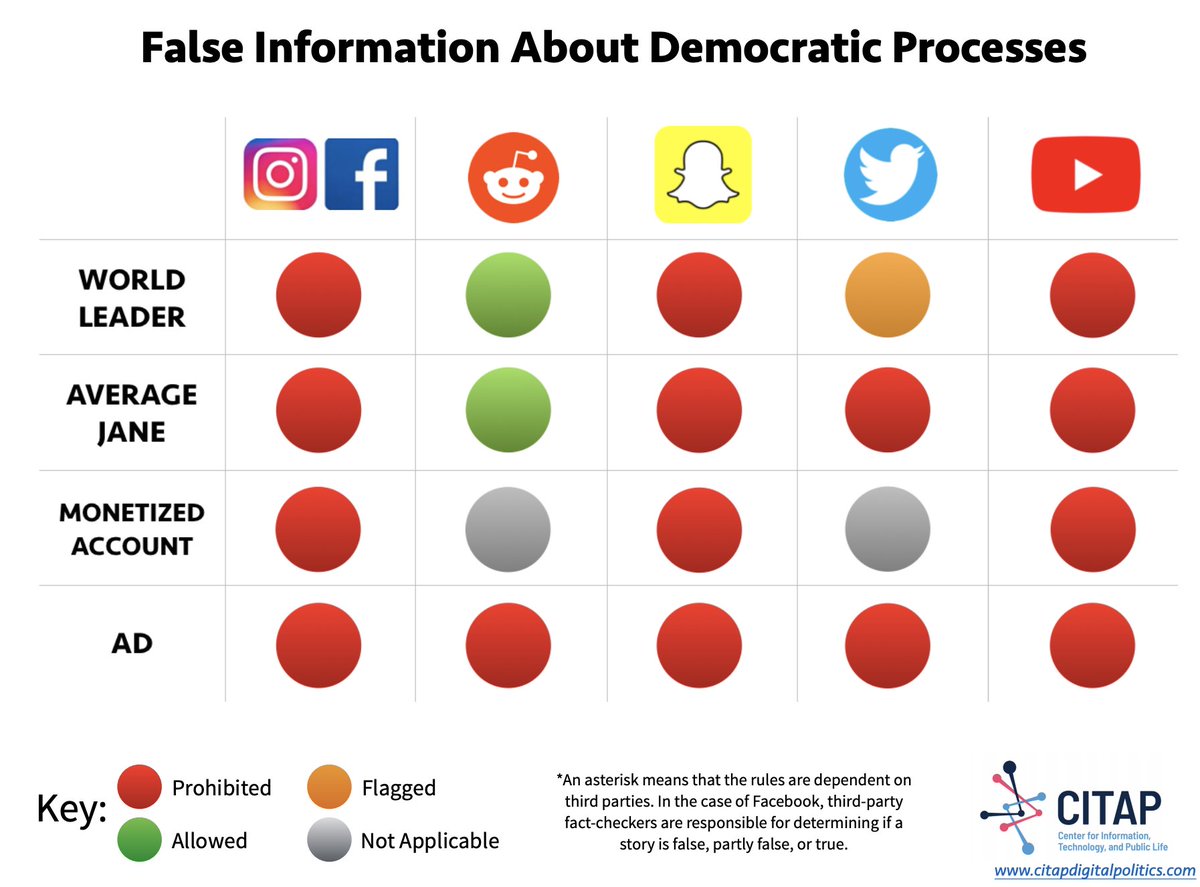
RE: @Facebook/Australia. Some years ago @ananny and I wrote a paper developing a framework for how governments can support 'public domain journalism' and even determine quality journalism! danielkreiss.files.wordpress.com/2010/05/ananny… Thread.
@ananny It was developed in the US context, but not limited to it, in essence reversing the mechanism of copyright to subsidize the creation of journalism voluntarily released to the public domain.
It’s a proposal that recognizes the public benefits from peoples' sharing and encountering news across platforms, while also providing a financial incentive to news organizations to share their intellectual property.
But we also argued this isn’t enough to produce the journalism publics need. After all, the Australian case pits Rupert Murdoch against Facebook - hardly a win for journalism or the public.
Instead, we argue that governments should directly support public domain journalism that accords with a set of content-neutral, quality practices: transparency, accountability, dialogue, reliability, and collaboration.
Representatives from various media sectors can create the guidelines for what these practices entail.
Anyway, the whole Australia episode is a bit silly honestly. The proposed law is not actually concerned with quality journalism. It is in essence pitting powerful interests against one another, while the public is sidelined.
The public needs both quality journalism and the opportunity to encounter it in many domains.
Removing news from Facebook will likely cause more problems, such as declines in revenues for publishers and increased mis/disinformation. At the same time, the way to ensure quality journalism is to directly fund it, not do so through a bizarre indirect tax on linking.
Also a shout out to @ananny’s brilliant book, which discusses all of this stuff in much greater detail: mitpress.mit.edu/books/networke…
• • •
Missing some Tweet in this thread? You can try to
force a refresh



